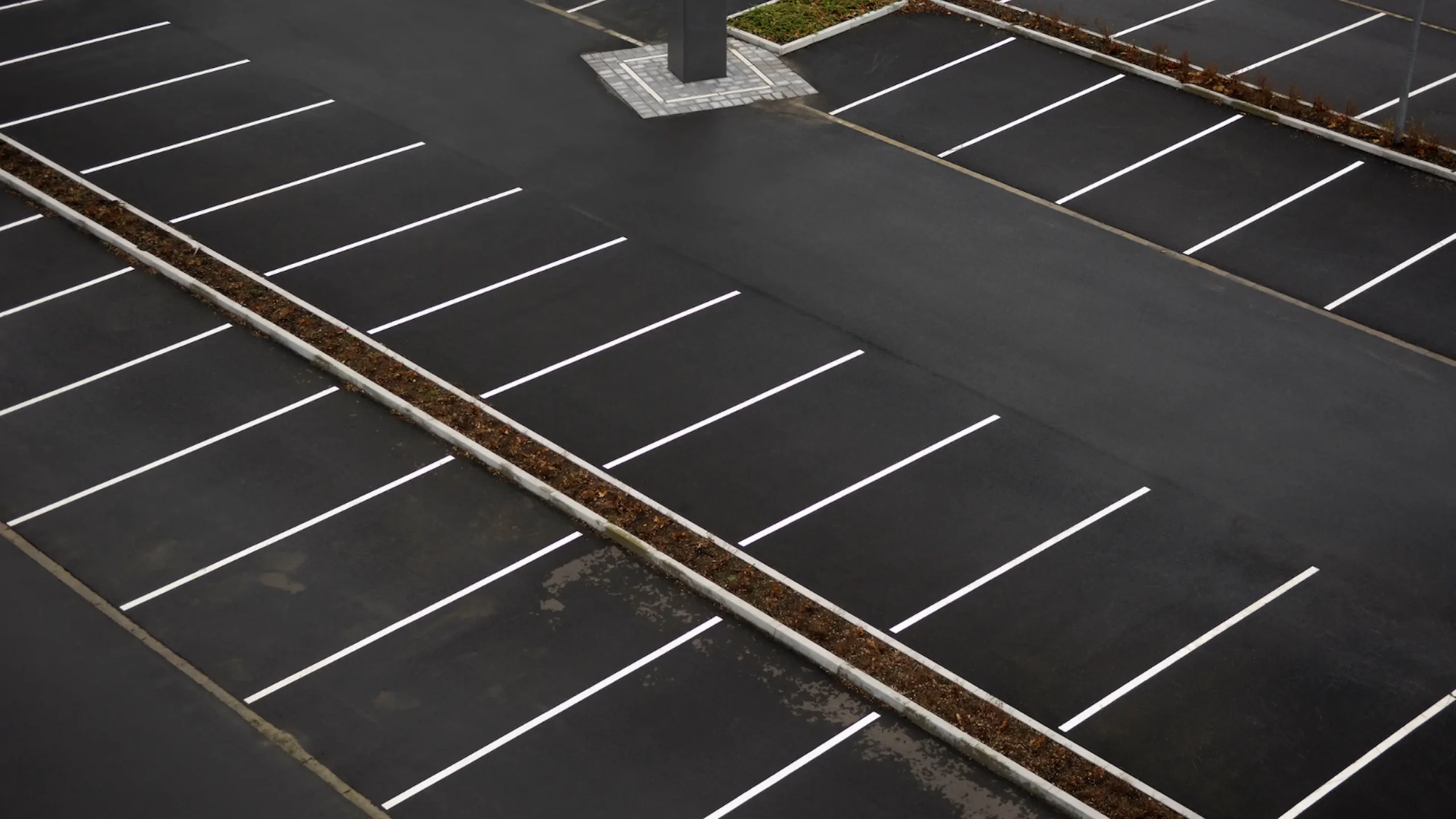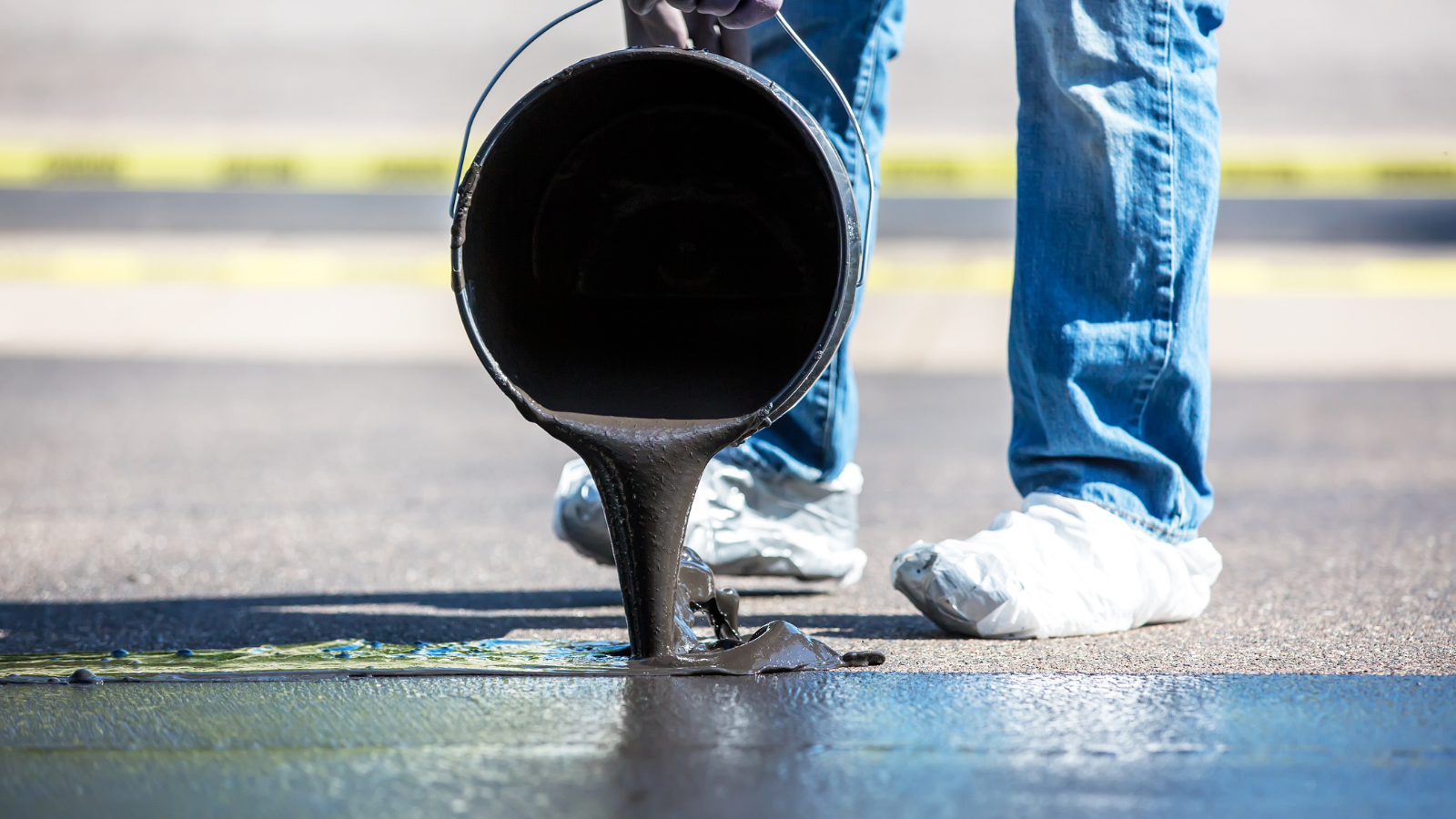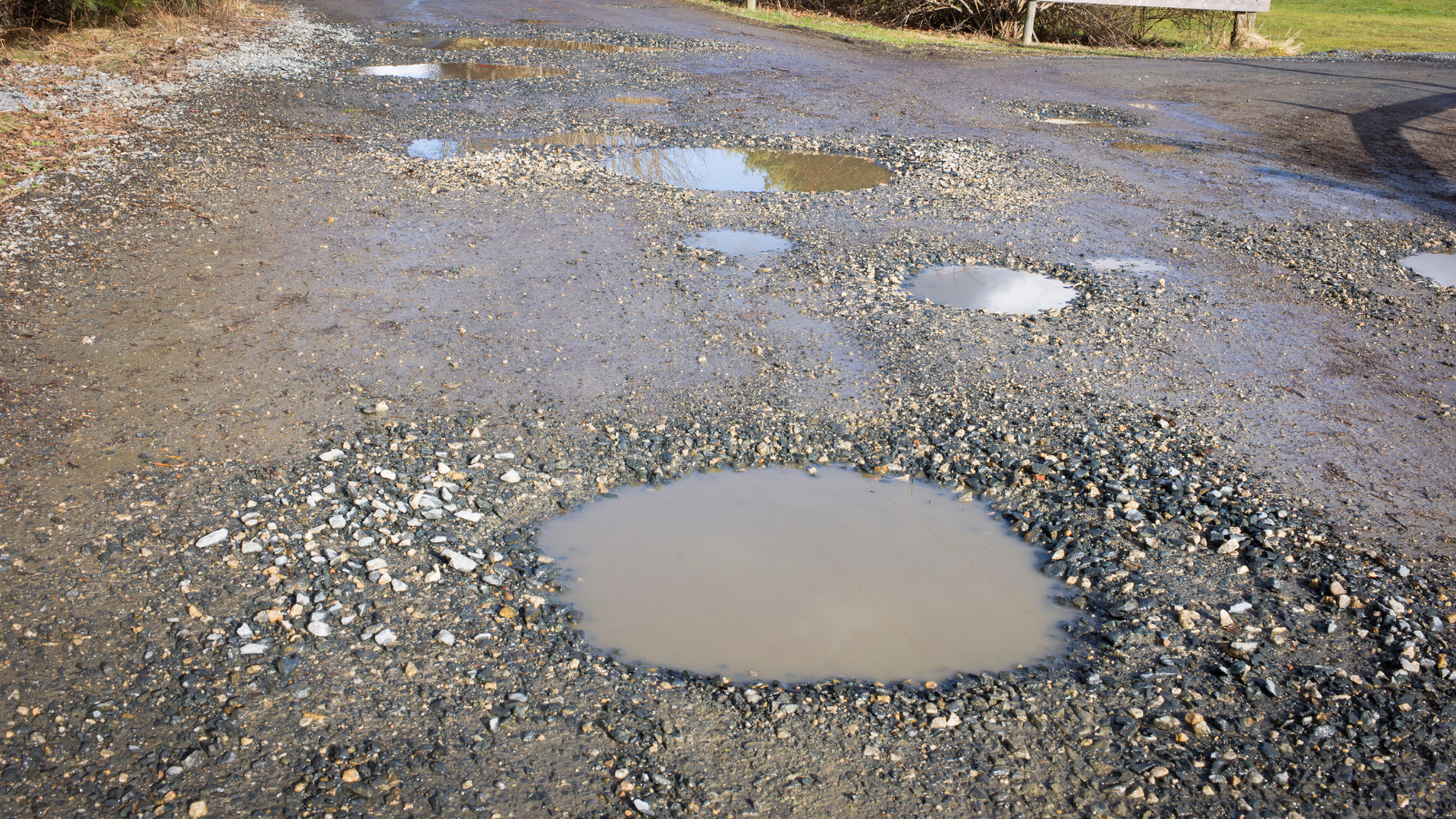A well-paved commercial parking lot boosts curb appeal, enhances safety, and leaves a lasting impression on visitors. Choosing the suitable materials and design can ensure durability and reduce long-term costs.
Key Takeaways
- Material Matters: Asphalt, concrete, and gravel have unique benefits; consider durability, budget, and traffic needs.
- Layout Efficiency: Smart design can maximize space, ease traffic flow, and allow future growth.
- Cost-Saving Tactics: Comparing quotes, prioritizing quality, and scheduling off-peak season projects can help reduce expenses.
- Maintenance is Key: Routine maintenance like seal coating and crack repair extends the parking lot’s lifespan.
Selecting the Proper Material for Your Business Parking Lot
Selecting a suitable material is critical for both longevity and cost-effectiveness. Here’s a comparison of everyday materials:
- Asphalt: Known for its affordability, asphalt is a go-to for many commercial parking lots. Installation is typically faster than other materials, requiring periodic maintenance like seal coating to prevent cracks. While asphalt is suitable for various climates, it may need more frequent repairs in regions with extreme temperature changes.
- Concrete: Though more expensive upfront, concrete is durable and can withstand heavy loads and fluctuating weather conditions. Due to its longer lifespan, concrete can be a wise investment for high-traffic areas. Concrete requires less frequent maintenance than asphalt, although crack repairs may be necessary over time.
- Gravel: The most budget-friendly option, gravel is ideal for temporary or low-traffic parking areas. Its lower installation cost is appealing but requires increased maintenance, as gravel may erode or shift over time. For businesses considering gravel, regular grading and replenishment can help maintain a stable surface.
Designing an Efficient Parking Lot Layout
A well-thought-out layout is essential for maximizing space, easing traffic flow, and enhancing the user experience. Fundamental design strategies include:
- Space Optimization: Angled parking spaces efficiently use limited areas and accommodate more vehicles. This setup also makes it easier for drivers to maneuver in and out of spaces, minimizing traffic congestion within the lot.
- Improving Traffic Flow: Use clear signage, painted lines, and designated entry/exit points to direct traffic smoothly through the lot. Wide lanes are beneficial for larger vehicles and can help prevent bottlenecks. Additionally, design features like one-way aisles can improve overall flow.
- Planning for Growth: Consider future expansion needs in your initial design. This foresight can save costs and avoid disruptions later on. Even if the current demand is low, a layout that allows for easy expansion can prevent the need for costly renovations in the future.
- Accessibility Compliance: Ensuring ADA compliance is crucial for accommodating all visitors. Designate accessible parking spaces close to entrances and ensure clear pathways for individuals with disabilities.
Cost-Effective Strategies for Commercial Parking Lot Paving
Paving a commercial parking lot is a substantial investment, but careful planning can help reduce costs without sacrificing quality. Here are a few cost-saving strategies:
- Obtain Multiple Quotes: Compare estimates from multiple contractors to find the best value. Assess each contractor’s services, as lower-cost estimates may not include essential features like seal coating or proper drainage solutions.
- Select the Right Material: Choose a paving material based on your needs. For instance, if your lot has high traffic, concrete may provide better long-term value despite the higher upfront cost. Conversely, asphalt can be a cost-effective solution for moderate-traffic lots.
- Factor in Long-Term Maintenance Costs: Frequent upkeep, such crack filling and seal coating, can avoid more extensive repairs. For instance, asphalt should ideally be resealed every 3–5 years, and concrete cracks should be repaired promptly to prevent water infiltration.
- Ensure Adequate Drainage: Proper drainage is essentialto avoid water buildup, which might result in potholes and surface damage. Installing drainage solutions during initial construction can save money on future repairs.
- Invest in High-Quality Installation: Quality installation is essential for a durable parking lot. Poor artistry can result in uneven surfaces, cracks, and early wear. Investing in skilled professionals who use high-grade materials can pay off in longevity.
- Optimize Layout Efficiency: A well-designed layout maximizes parking spaces and improves safety, reducing accidents and liability risks.
- Install Adequate Lighting: Good lighting enhances safety and security. High-quality, energy-efficient lights improve visibility for drivers and pedestrians, especially in evening or low-light conditions.
- Schedule During Off-Peak Seasons: Many contractors offer discounts during slower times, such the early spring or late fall. Scheduling your project during these times can help secure better rates.
- Negotiate Contract Terms: Discuss contract details with your contractor, such as payment terms, warranties, and potential discounts. Many companies are open to negotiation, particularly for large projects.
Frequently Asked Questions (FAQ)
1. How much does it cost to pave a commercial parking lot?
The cost varies based on lot size, material, and project complexity. Asphalt typically costs less than concrete, though maintenance expenses should be considered for a total cost assessment.
2. How long does it take to pave a parking lot?
Paving duration depends on lot size, material choice, and weather. Asphalt projects are usually faster to complete than concrete ones, with most asphalt lots taking a few days to finish.
3. What maintenance does a parking lot need?
Routine maintenance extends a lot’s lifespan. Asphalt requires regular seal coating and crack repair, while concrete may need occasional crack filling to prevent water intrusion and surface erosion.
4. Can I pave over an existing parking lot?
In some cases, you can pave over an existing surface. However, a contractor should assess the lot’s condition to ensure the base layer can support a new top layer.
5. What elements influence an individual’s lifespan parking lot?
Material quality, traffic load, local climate, and maintenance frequency all influence a lot’s life. A well-installed and properly maintained asphalt lot can last 15–20 years, while concrete can last over 30 years.
6. How can I make my parking lot more accessible?
Design your lot to meet ADA standards, with designated parking spaces, clear signage, and accessible pathways. This ensures everyone, including individuals with disabilities, can access your business safely.
7. Does installing drainage add to the project cost?
While drainage solutions add upfront costs, they are a wise investment. Adequate drainage prevents standing water, leading to cracks, potholes, and erosion, saving on long-term repair costs.
8. How can I reduce repair costs?
Regular maintenance is the best way to keep repair costs low. Promptly filling cracks, resealing surfaces, and fixing minor issues can prevent major repairs.
By using these tips and hiring a trusted paving contractor, businesses can build a helpful parking lot that looks good, lasts a long time, and increases the value of their property.
Transform Your Driveway Today with Elizabeth Paving Services!
Schedule a consultation with our experts and give your driveway a fresh, durable finish!







